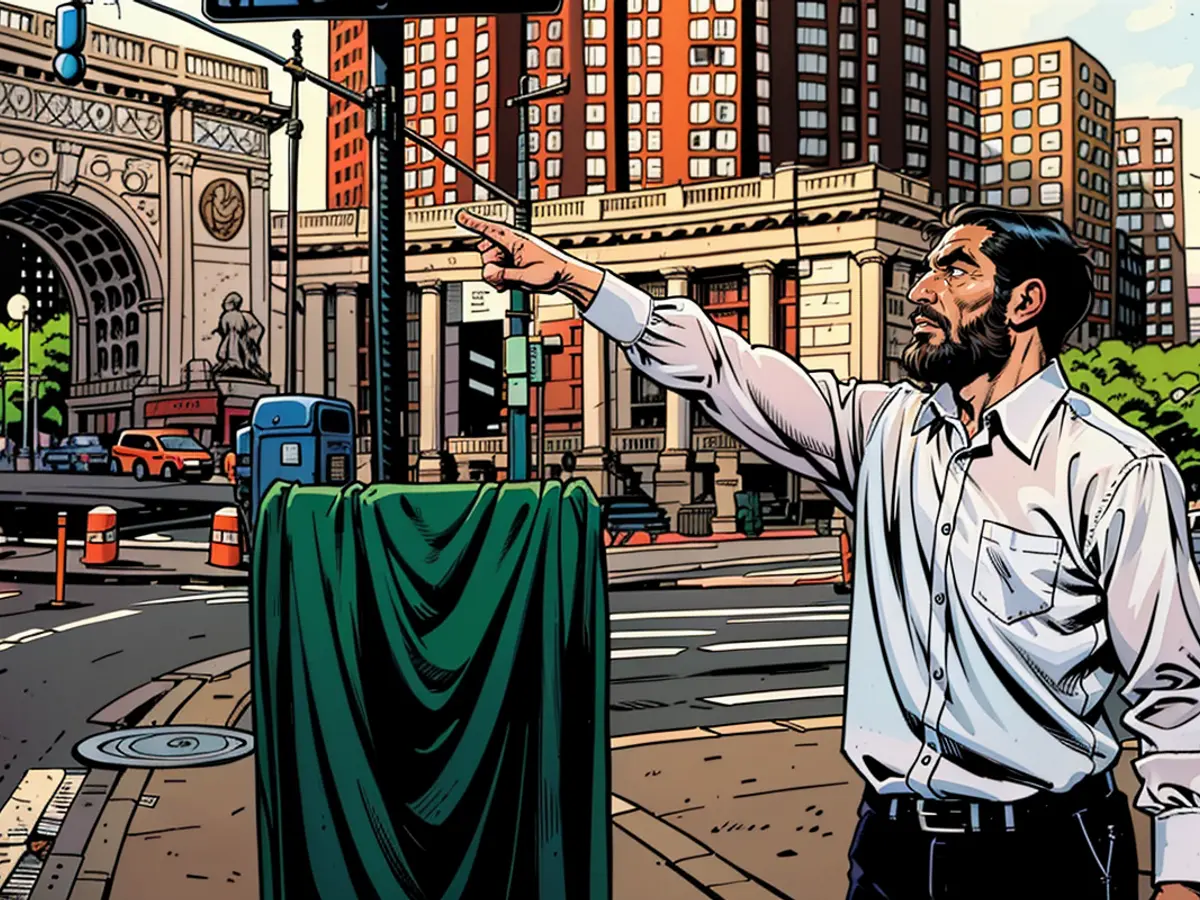- Why a Fishing Line Stretches Across Manhattan
Before the sun ascends over the East River, Moshe Tauber navigates his slightly blemished black minivan across the George Washington Bridge into Manhattan. At the intersection of Riverside Drive and 145th Street, he snatches a line made of nylon at exactly 4:30 PM - a routine he's maintained every Thursday for about 25 years. He's never missed a Thursday. "Check out that fishing line up there? It goes the whole way from 145th Street to Madison Avenue. We gotta verify that, so that's where we start."
Tauber is a father of twelve, runs a daycare center with his wife, and teaches at a Jewish school. However, every Thursday, the 50-year-old journeys an hour from his hometown of Monsey into New York City's bustling center to inspect the Eruv of Manhattan - a string that spans large portions of Manhattan, hung on street posts among other things. On Friday morning, Tauber returns to liaise with craftsmen, coordinate repairs, and ensure everything is in order for Friday evening.
A string revolutionizing Sabbath life
"On Jewish Sabbath - from sunset on Friday to the beginning of darkness on Saturday - some activities are prohibited," says Rabbi Adam Mintz, based in Manhattan. "One such activity is transporting objects beyond your own household - that includes pushing strollers or playing baseball," he explains.
"To overcome this restriction, rabbis thought of boundary marking almost 2000 years ago. The area within these boundaries then becomes exclusive, and all restrictions are lifted," Mintz explains. Initially, real walls were used to accomplish this, but due to practicality concerns, strings and posts have replaced them.
Various cities worldwide with significant Jewish populations have their own Eruvs - places like Antwerp, London, Toronto, and Vienna. According to the Central Council of Jews, Germany doesn't have a permanent Eruv. In New York, home to an estimated millions of Jewish people, numerous Eruvs exist.
However, the Manhattan Eruv that Tauber inspects every Thursday is the biggest globally, asserts Rabbi Mintz. It covers 145th Street all the way to the southern tip of Manhattan, encompassing nearly the entire island. This isn't just a fishing line everywhere, but includes fences and walls previously built for other purposes.
Since the establishment of the Manhattan Eruv in 1999, in collaboration with the New York City administration, Rabbi Mintz has served as its official president on behalf of around a dozen Jewish institutions and organizations, with Rabbi Tauber as its caretaker.
"Everything operates smoothly," says Mintz. "I mostly focus on fundraising." Approximately $150,000 annually, primarily sourced from donations from Jewish institutions and private individuals. "Rabbi Tauber handles the bulk of the work."
The Eruv's main threats: construction works and snowstorms
Vandalism has never been an issue, primarily damage to the Eruv is caused by construction works or weather conditions, particularly snowstorms. Post-Hurricane "Sandy" in 2012, the artisans under Tauber's supervision repaired the Eruv for several days to restore it before Sabbath commencement.
Moving south along the East River from 145th Street, Tauber no longer indulges in the sunrise. "No time to observe the sunrise," says Tauber, acutely watching traffic and the fishing line.
He rarely appreciates Manhattan's attractions. "Don't spend much time here, occasionally visit the synagogue." Otherwise, he savors the quiet solitude during inspections. "I often listen to lectures on Jewish topics, occasionally even record and replay my own lessons."
Not everyone endorses the Eruv, says Rabbi Mintz. "People have always disagreed if it's essential to abide by the rules without exemptions."
Growing up in Monsey without an Eruv, Tauber shares, "You can manage without it." With an Eruv in place now - "You get used to it, and it's difficult to imagine living without it, especially for families with young children in strollers."
"The Eruv is intact."
With his black minivan, Tauber has now traversed the southern tip of Manhattan and drives north alongside the Hudson River. His surroundings slowly come to life as daybreak breaks. The first joggers and cyclists emerge, late-night revelers emerge from bars and clubs. Most remain oblivious to the fishing line looming above their heads in many locations. The coexistence of these worlds intrigues Rabbi Mintz. "And it's just so beautiful to know that something like the Eruv still persists today."
This Thursday morn, Tauber's inspections hadn't uncovered a solitary flaw in the Eruv. At the journey's commencement, he halted the minibus, pulled out a black cell phone from his pocket. "This here's my sole phone, mate. It's all locked down, no internet access either. I can only bash out texts with it." As per tradition every Thursday morning, he now inputted the inspection outcomes to Mintz and the authority figures from some Jewish gatherings. "The Eruv's all good."
Tauber needs to ensure that the Eruv extends to other vehicles on the streets, as commuters using public buses or taxis also benefit from the Eruv.
During his inspections, Tauber checks the condition of the Eruv on parking meters and bike racks, as these structures are often used by those within the Jewish community.






